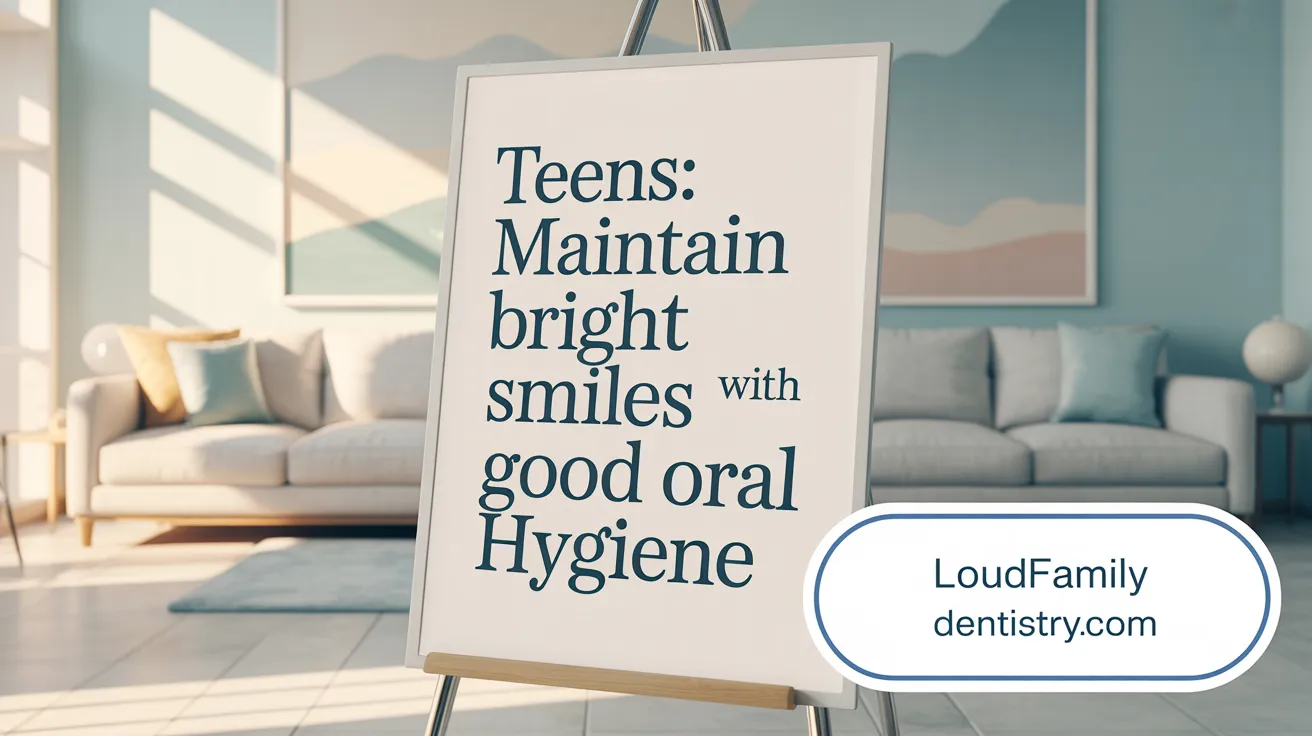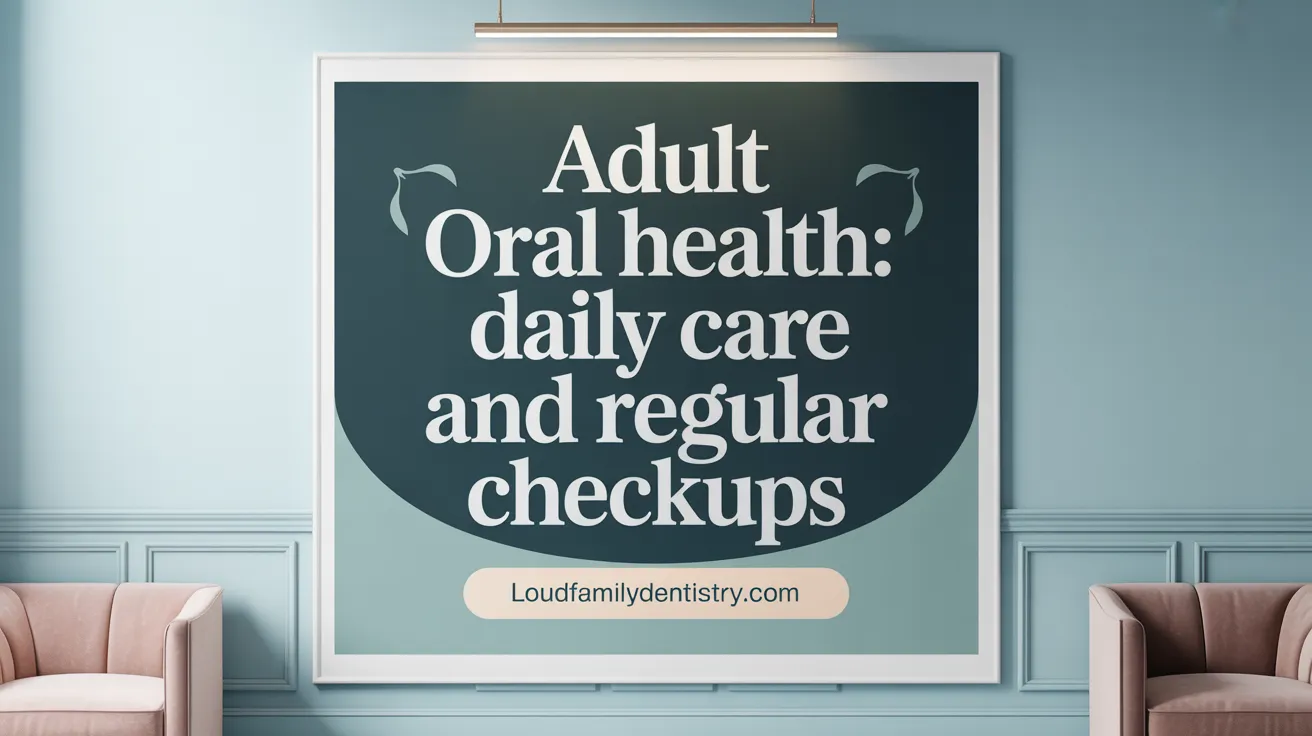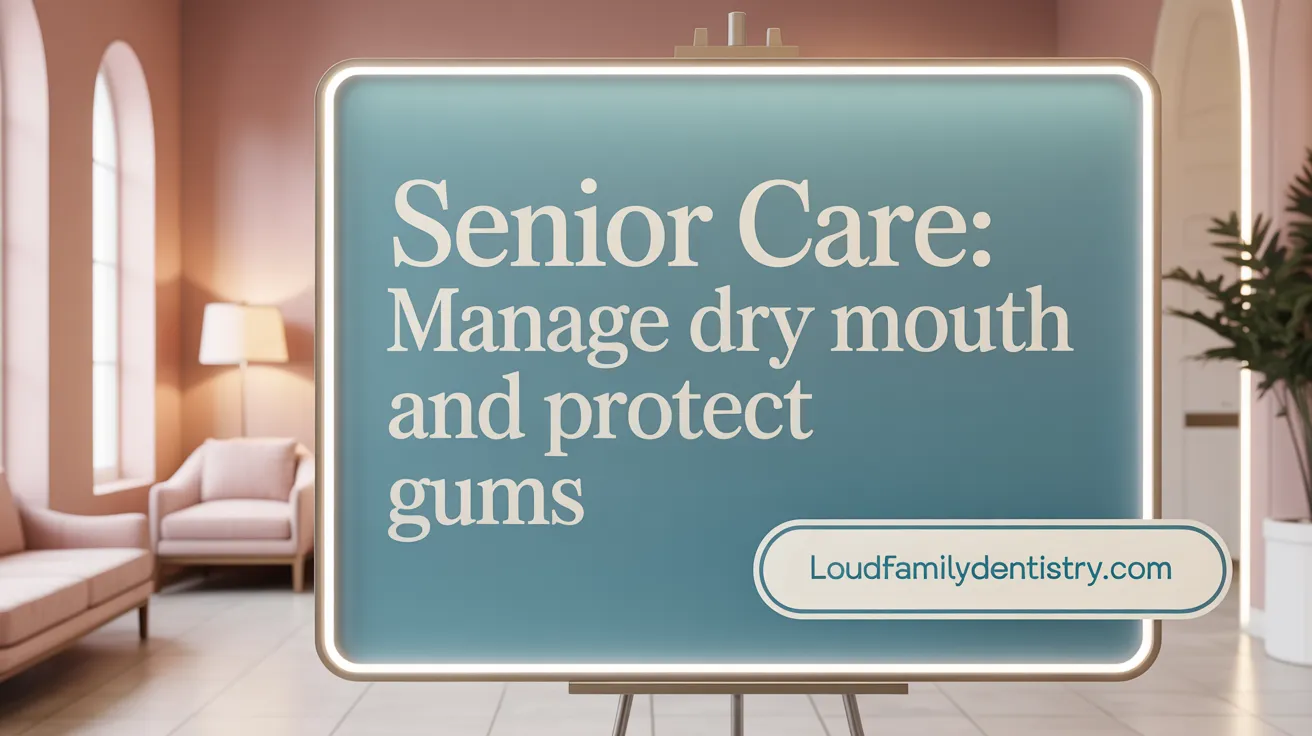Introduction to Preventive Dental Care for All Ages
The Importance of Preventive Dental Care
Preventive dental care is essential for maintaining a healthy smile and overall well-being at every stage of life. It helps avoid common issues such as cavities, gum disease, and other oral health challenges. By adopting proper hygiene habits and attending regular dental check-ups, individuals can reduce the risk of pain, infection, and costly restorative treatments.
Oral Health Challenges Through Life
Children often face cavities, with many having had decay by ages 6 to 19, which can hinder eating, speaking, and learning. Teens need guidance to maintain hygiene especially with braces and to avoid tobacco use that can harm oral health. Adults may experience gum disease and tooth wear, while hormonal changes during pregnancy can affect dental health. Older adults confront challenges like dry mouth, receding gums, and tooth loss that require special attention and care.
Role of Community Dental Clinics
Community dental clinics, such as those in Shreveport, Louisiana, play a vital role in offering accessible preventive, restorative, and emergency dental care. These clinics provide fluoride treatments, dental sealants, oral cancer screenings, and education that help protect oral health for families. Their compassionate approach encourages routine care and helps build lifelong healthy habits across the population.
Establishing Healthy Oral Habits in Infants and Children

Early Dental Visits by Age One
Scheduling the first dental appointment by a child's first birthday is crucial. Early visits allow dentists to monitor dental development, catch potential issues early, and guide parents on proper oral hygiene practices. This foundation supports long-term dental health and helps prevent tooth decay.
Brushing and Flossing Routines for Children
Parents should brush their children’s teeth twice daily with fluoride toothpaste, supervising until children can brush effectively themselves. Children should begin flossing once they have two teeth that touch, to remove plaque between teeth where brushes cannot reach (children flossing guidance).
Use of Fluoride Toothpaste and Varnish
Using fluoride toothpaste as soon as teeth emerge helps strengthen enamel and prevent cavities. Additionally, fluoride varnish benefits applied by dental professionals can reduce cavities in primary teeth by about one-third.
Role of Dental Sealants
Dental sealants for children provide a protective coating on children’s back teeth, preventing about 80% of cavities. Sealants are durable and can protect teeth for many years, especially during cavity-prone periods (prevention of cavities with sealants).
Impact of Fluoridated Water
Children drinking tap water with fluoride have fewer cavities (fluoridated tap water and cavities. Impact of fluoridated water on dental health strengthens teeth and is an important, community-wide preventive measure.
Dietary Considerations for Cavity Prevention
Limiting sugary snacks and drinks reduces the bacteria that cause tooth decay. A balanced diet supports oral health and overall well-being (oral hygiene tips).
What comprehensive dental services are typically offered at community-oriented dental clinics?
Community-oriented dental clinics focus on preventive care including fluoride treatments and dental sealants to protect children's teeth. Early dental exams monitor development and provide education to families, reducing childhood tooth decay and promoting healthy oral habits from an early age. This highlights the role of community-oriented dental clinics in preventive care.
Adolescents and Teens: Maintaining Oral Health During Growth and Change

Why Is Brushing and Flossing Important for Teens?
Adolescence is a critical time for dental care because the mouth undergoes many changes. Brushing twice daily using fluoride toothpaste and flossing once a day help prevent plaque buildup and cavities. Proper brushing technique, such as using a soft-bristled toothbrush angled at 45 degrees to the gumline, ensures thorough cleaning. Regular flossing cleans areas between teeth where brushes can't reach, helping prevent gum disease.
What Are the Risks of Tobacco and Vaping on Teen Oral Health?
Tobacco use and vaping can severely damage teen oral health by increasing the risk of gum disease, tooth decay, and oral cancer. These habits contribute to plaque buildup and dry mouth, which encourages harmful bacteria growth. Teens should be educated about these risks to help them avoid tobacco products and maintain healthy teeth and gums.
How Does Orthodontic Care Affect Oral Hygiene?
Many adolescents undergo orthodontic treatments like braces or clear aligners. These devices require extra attention to oral hygiene because they create more places for plaque and food particles to collect. Using specialized flossers, interdental brushes, and electric toothbrushes can help keep teeth clean. Regular dental visits are important to monitor oral health during orthodontic treatment.
How Can Diet Influence Cavity Prevention in Teens?
A balanced diet low in sugary snacks and drinks is essential to prevent cavities. Sugars feed bacteria that cause tooth decay, so limiting sweets helps protect teeth. Encouraging teens to drink fluoridated water and eat calcium-rich foods supports strong teeth and healthy gums.
Why Should Teens Use Mouthguards for Sports?
Mouthguards protect teeth and gums from injury during contact sports or athletic activities. Wearing a custom or properly fitted mouthguard reduces the risk of knocked-out teeth, chipped teeth, and soft tissue damage, supporting long-term oral health. See Using Mouth Guards for Sports for more information.
Maintaining good oral hygiene routines and making healthy lifestyle choices during adolescence build a foundation for strong dental health into adulthood.
Adult Oral Care: Prevention, Management, and Overall Health Connection

How should adults maintain daily oral hygiene?
Adults should brush their teeth at least twice daily using fluoride toothpaste, which helps strengthen enamel and prevent decay. Flossing once a day is essential to remove plaque and food particles between teeth where brushes cannot reach, reducing the risk of cavities and gum disease. Using a soft-bristled toothbrush and gentle, circular brushing motions at a 45-degree angle towards the gumline enhances plaque removal. Incorporating tongue brushing or scraping can further reduce bacteria and bad breath. For more details, see Oral Hygiene Best Practices.
Why are regular dental visits and professional cleanings important for adults?
Visiting the dentist at least once or twice a year allows for early detection and management of oral issues like cavities and gum disease. Professional cleanings remove tartar—hardened plaque—that cannot be eliminated by routine brushing and flossing. These visits also include oral cancer screenings and assessments tailored to any increased risk factors. Learn more under Preventive dental care.
How can gum disease and early decay be managed effectively?
Managing gum disease involves consistent home care and professional maintenance. Early signs like bleeding gums should prompt consultation with a dental professional to prevent progression into periodontitis. Early decay can often be treated promptly, avoiding more invasive restorative procedures. Adults should be particularly attentive to gum health and watch for signs of sensitivity or recession. See Good oral health benefits and gum disease prevention for further guidance.
What oral health risks are associated with chronic diseases?
Chronic conditions such as diabetes, heart disease, and arthritis increase susceptibility to oral infections and gum disease. For example, diabetes can exacerbate gum inflammation and hinder healing. Maintaining good oral hygiene in conjunction with managing chronic health conditions can improve both oral and overall systemic health. Refer to Oral Health Tips for Adults and Chronic Disease Connections.
Why is avoiding tobacco and excess alcohol crucial for oral health?
Tobacco use is a leading cause of gum disease and oral cancers. Alcohol consumption also elevates the risk of oral cancer and worsens gum disease. Avoiding these substances greatly lowers these risks, contributing to healthier gums, teeth, and overall oral tissues. For comprehensive information, visit Avoiding Tobacco and Alcohol for Oral Health.
What is the importance of oral cancer screening for adults?
Oral cancer screenings during routine dental exams allow for early detection of potential lesions or abnormalities, dramatically improving treatment outcomes. Adults, especially those who use tobacco or alcohol, or are exposed to HPV, should prioritize regular screenings. Additional information can be found at Oral Cancer Screening in Adults.
How should oral hygiene be adapted during pregnancy?
Pregnant women experience hormonal changes increasing the risk of gingivitis and cavities. Maintaining diligent oral hygiene, including regular brushing, flossing, and dental visits, is essential to protect both maternal and fetal health. Professional guidance can help manage pregnancy-related oral health changes effectively. See Oral Hygiene During Pregnancy for details.
Maintaining excellent oral hygiene and regular professional care are foundational for adults to prevent oral disease and promote systemic health. These practices are essential for a confident smile and overall well-being throughout adulthood. For an overview, visit Good Oral Care Habits for Adults.
Oral Health in Seniors: Addressing Unique Challenges with Preventive Care

Managing Dry Mouth and Gum Recession
Dry mouth is a common issue among seniors, often caused by medications or health conditions. It reduces saliva flow, which normally helps protect teeth and gums. Using saliva substitutes and staying well-hydrated are effective ways to ease discomfort and reduce risk of decay. Gum recession, which exposes sensitive tooth roots, requires gentle brushing and regular care to prevent further damage (oral care for seniors, managing dry mouth).
Importance of Oral Appliance Care
Many older adults use dentures, implants, or bridges. Proper daily cleaning of these appliances is crucial to prevent infections and maintain oral health. Visiting the dentist regularly ensures these appliances fit well and function correctly (denture and implant cleaning, oral hygiene for seniors).
Regular Dental Checkups and Oral Cancer Screening
Routine dental visits every six months are vital for seniors. They enable early detection of gum disease, cavities, and oral cancer, conditions which are more common with age. Professional cleanings also remove tartar that can worsen gum problems (oral cancer screening for older adults, routine dental visits for seniors.
Nutritional Support for Dental Health
A balanced diet rich in calcium and vitamin D strengthens teeth and bones. Limiting sugary snacks helps prevent cavities. Seniors should focus on nutrition that supports healing and oral tissue health (calcium and vitamin D for oral health, balanced diet supports oral health.
Preventing Tooth Loss
Preventive care and early treatment of gum disease help maintain natural teeth longer. Managing dry mouth and practicing good oral hygiene reduce risks of tooth loss (preventing cavities and gum disease, oral hygiene for seniors.
Role of Hydration and Saliva Substitutes
Hydrating well counters dry mouth effects. Saliva substitutes can restore moisture and protect against bacterial damage, enhancing comfort (hydration for oral health, managing dry mouth.
Special Assistance in Oral Hygiene
Seniors may face dexterity challenges; using floss holders, electric toothbrushes, or seeking caregiver help improves daily cleaning effectiveness. Education and support from dental professionals ensure seniors maintain healthy habits (flossing tools for dexterity issues, oral hygiene for seniors.
This comprehensive preventive approach enables seniors to preserve their oral health, improve quality of life, and prevent costly dental problems (routine dental visits, preventive dental care for older adults.
The Role of Community-Oriented Dental Clinics in Promoting Preventive Care
What qualities make a dental clinic community-oriented?
A community-oriented dental clinic stands out by providing affordable and easily accessible dental care in a welcoming atmosphere. These clinics actively engage in outreach efforts, educating the public about oral health tips for children to foster better preventive habits. Personalized care is another hallmark, as they tailor treatments to the unique needs of patients across all ages, from infants to seniors. They build trust through compassionate services and participate in local health initiatives, aiming to elevate overall community wellness. For insights into the role of community-oriented dental clinics in preventive care, these clinics integrate comprehensive dental services to support their community focus.
What comprehensive dental services are typically offered at community-oriented dental clinics?
Community dental clinics provide a full range of services designed to maintain and improve oral health. Preventive care includes regular cleanings, fluoride varnish benefits, and dental sealants for children—which can prevent up to 80% of cavities in children's back teeth. Additionally, understanding the prevention of cavities with sealants is critical in safeguarding children's oral health. Restorative treatments such as fillings and crowns address existing dental issues. Many clinics also offer cosmetic dentistry and specialized care tailored to children, older adults, and individuals with disabilities, ensuring inclusive treatment for everyone. For more about how clinics support oral health routines, see the role of community-oriented dental clinics in preventive care.
How can dental clinics focus on patient comfort during visits?
Creating a comfortable environment is crucial for encouraging regular dental visits. Clinics achieve this by using gentle treatment techniques and modern dental technology that minimize discomfort. Some offer sedation options to help anxious patients feel at ease. Effective communication and compassionate care from staff foster a trusting relationship, making patients feel valued and relaxed during appointments.
Community-oriented dental clinics play an essential role in preventive dentistry by combining accessible, personalized, and compassionate care with education and outreach efforts. This holistic approach helps communities maintain healthier smiles and reduces the incidence of serious dental issues over time. Moreover, they often advocate for preventive measures such as the impact of fluoridated water on dental health to contribute to long-term oral health benefits.
Summary: Commitment to Lifelong Preventive Dental Care
Importance of Adopting Healthy Dental Habits at Every Age
Good oral health begins in infancy with gentle gum cleaning and continues through childhood with twice-daily brushing and flossing. Adolescents and adults benefit from sustained hygiene practices and awareness of risks like tobacco use. Seniors need to manage issues like dry mouth and gum recession with professional guidance.
Benefits of Regular Dental Visits and Community Clinic Support
Routine dental check-ups every six months allow early detection and prevention of cavities, gum disease, and oral cancer. Local clinics, like those in Shreveport, offer accessible preventive and emergency dental services that support community oral health.
Empowerment Through Education and Professional Care
Education on proper brushing, flossing, and diet empowers individuals to maintain their oral health effectively. Professional dental care, including cleanings, fluoride treatments, and sealants, enhances protection and promotes a healthy smile throughout life.
